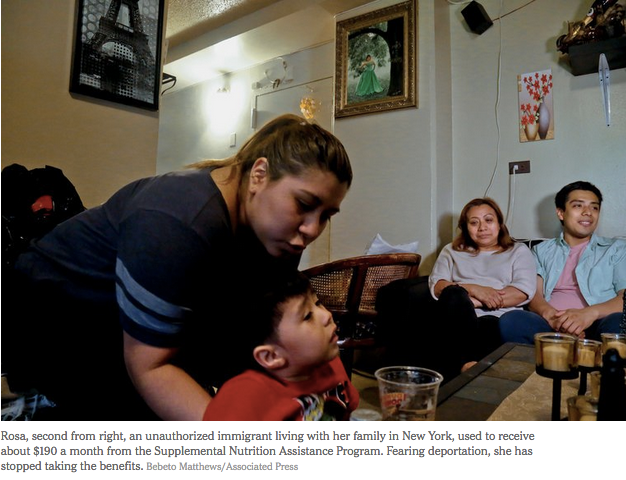WASHINGTON — Immigrants hoping for permanent residence are dropping out of public nutrition programs even before prominent elements of the Trump administration’s proposed policy changes are enacted, fearful that participating could threaten their citizenship eligibility or put them at risk for deportation, according to program administrators.
Statistics on participation in state and local efforts show fewer people are using an array of food programs, including the Supplemental Nutrition Program for Women, Infants and Children (called WIC) as well as the Supplemental Nutrition Assistance Program (or SNAP, formerly known as food stamps) and food banks.
“The rumor mill is rampant, and the fear is palpable,” said Lisa David, president and chief executive of Public Health Solutions, a major WIC and SNAP provider for New York City. “The stakes for what could happen in the future are incredibly high, and people just aren’t willing to take that risk.”
The Department of Homeland Security has drafted a regulation that would allow officials to factor in the use of benefits — like WIC, SNAP, the Children’s Health Insurance Program and even housing and transit subsidies — when deciding whether to approve some visa or green card applications.
A leaked draft of the proposal first reported by Reuters and then published by Vox showed that immigrants seeking an adjustment of status, such as those applying for permanent residency, “must establish that they are not likely at any time to become a public charge” or rely heavily on long-term government assistance, lest they be deemed “inadmissible.”




